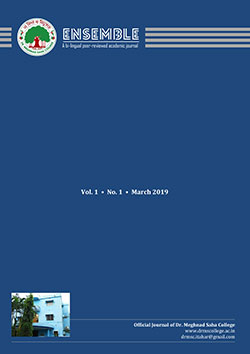Roots, Gendered Rules and Superstitious Rule-Outs : Complexities and Conflicts Pervading the Essence of Nagamandala
Abstract :
Girish Karnad’s play, Nagamandala : Play With a Cobra looks into the necessity of paying attention to women’s individuality, unacknowledged by orthodox religions as well as taboo-driven ethnic and cultural norms. The very same vehicles of superstition, story and song are appropriated by the playwright to ignite the lamp of reason and curb ignorance. But, deep down, it presents the inescapability from the very societal tradition which is subjected to evaluation. This paper attempts to bring out the ways in which Nagamandala exposes the sinister outcomes of undisputed autonomy enjoyed by men over their licit or illicit partners and the role played by superstition in ensuring the same. Also, some of the obvious paradoxes which indicate the ambivalent conflicts and consonances between internalized traditional perspectives and their critique are analyzed as an extension of the masculine power dynamics. The study endeavors to deduce that the discursive space opened by Nagamandala does not seem to re-write the rules governing women’s agency or erase the contours of women’s opinions, since fighting the stereotypical image of the feminine in folk tales and mythical narratives makes it mandatory to liberate both from the folkloric base and the very cultural background, which will shoot the aesthetic appeal of the text down.
Keywords: mobility, authority, sexuality, abuse, superstition
https://doi.org/10.37948/ensemble-2021-0301-a020
Views: 1541



